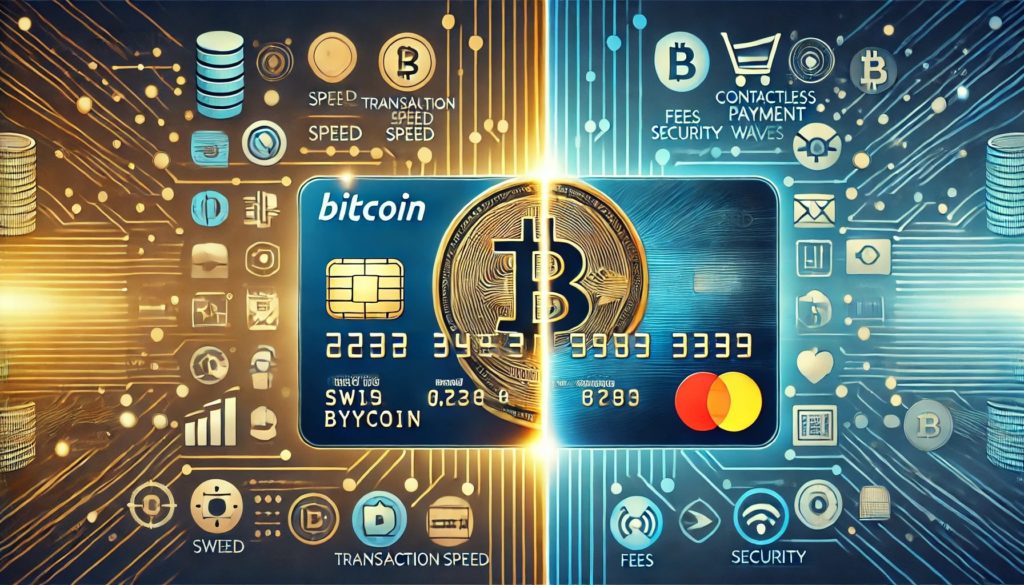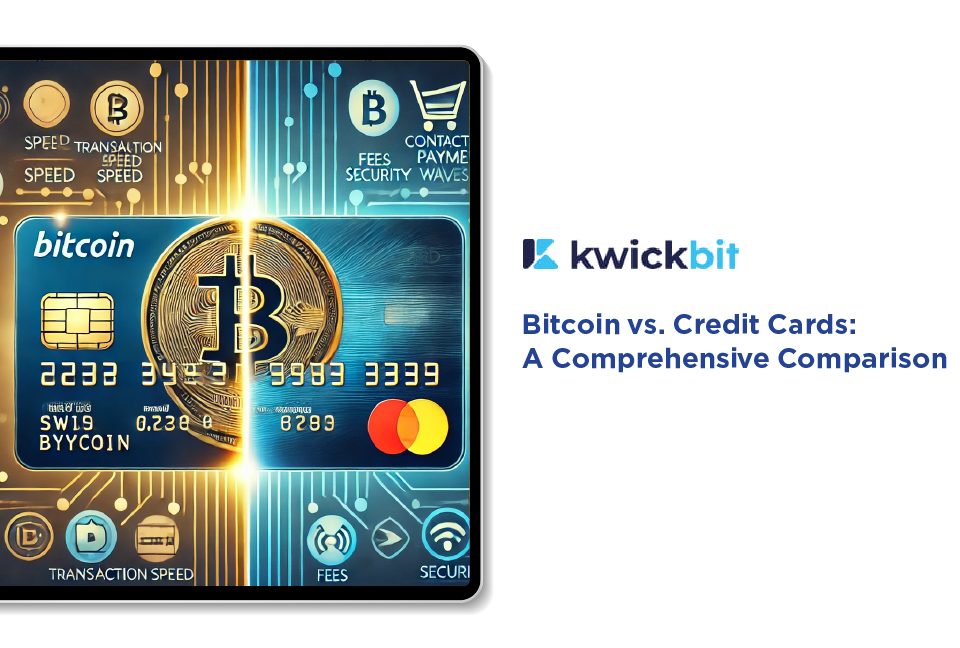In today’s digital age, Bitcoin and credit cards are two prominent payment methods, each with its unique advantages and limitations. While credit cards are globally accepted and widely used, Bitcoin has gained popularity for its decentralization and potential to revolutionize financial systems.
This article explores the differences between Bitcoin and credit cards in terms of fees, transaction speed, security, decentralization, and adoption. Uncover insights with KwickBit!
Fees: Understanding the Costs
Credit card transactions often come with hidden fees. Most credit card companies charge merchants between 1.4% and 3.5% of the transaction amount, with additional fees for international payments. These costs are usually passed on to the consumer.
Bitcoin, on the other hand, offers more transparency and control. Transaction fees are determined by the sender and are generally lower, especially for large amounts or cross-border payments. The catch? Paying a higher fee typically speeds up transaction processing.
Pro Tip: If you’re looking to save on international transactions, Bitcoin could be a game-changer.
Learn more about Bitcoin vs. credit cards in Investopedia’s detailed guide.
Transaction Speed: Instant or Delayed?
Credit cards generally process payments instantly at the point of sale, but the actual settlement can take 1-3 business days. Bitcoin transactions are slightly different. They rely on a blockchain network where transaction speeds depend on network congestion and the fees offered. Without sufficient fees, Bitcoin transactions might experience delays.
That said, innovations like the Bitcoin Lightning Network are working to reduce transaction times, making Bitcoin more viable for everyday purchases.
Security: Who Has the Upper Hand?

When it comes to security, Bitcoin operates on a decentralized blockchain that uses cryptographic protocols to secure transactions. Every transaction is immutable and visible to the public, ensuring transparency.
Credit cards, though convenient, are susceptible to fraud. Data breaches and stolen PIN codes can lead to unauthorized transactions, often requiring lengthy disputes to recover funds. Bitcoin eliminates such risks by transferring funds directly between users without intermediaries.
Did You Know? Unlike Bitcoin, credit card transactions are reversible, which can be a double-edged sword for merchants dealing with fraudulent chargebacks.
For a deeper dive into cryptocurrency security, check out our guide on Protecting Your Digital Assets.
Decentralization: Power to the People
Bitcoin’s decentralized nature means no single entity controls the network. Instead, transactions are verified by a global community of miners, making it resistant to censorship or manipulation. This quality also ensures that Bitcoin cannot be confiscated or frozen by authorities—a significant advantage in regions with unstable economies.
Credit cards, however, operate under centralized authorities like banks or payment processors, which can impose restrictions, freeze accounts, or even deny transactions based on their policies.
Mass Adoption: The Road Ahead

Credit cards enjoy unparalleled acceptance worldwide, making them a go-to choice for most consumers. Bitcoin, while gaining traction, still faces challenges in terms of mass adoption. Many retailers have yet to integrate cryptocurrency payment systems, and regulatory hurdles in certain countries slow down its widespread use.
However, as businesses and individuals recognize Bitcoin’s benefits, including low fees and transparency, the adoption rate continues to grow.
Conclusion
So now you’ve reviewed about Bitcoin vs. Credit Cards: A Comprehensive Comparison. KwickBit hopes this article will provide you with more useful information.
Choosing between Bitcoin and credit cards depends on your priorities. If you value convenience and universal acceptance, credit cards remain the better option. However, if you’re seeking lower fees, enhanced security, and decentralization, Bitcoin is worth exploring.
KwickBit – Non-custodial Payment Gateway
Read more:
